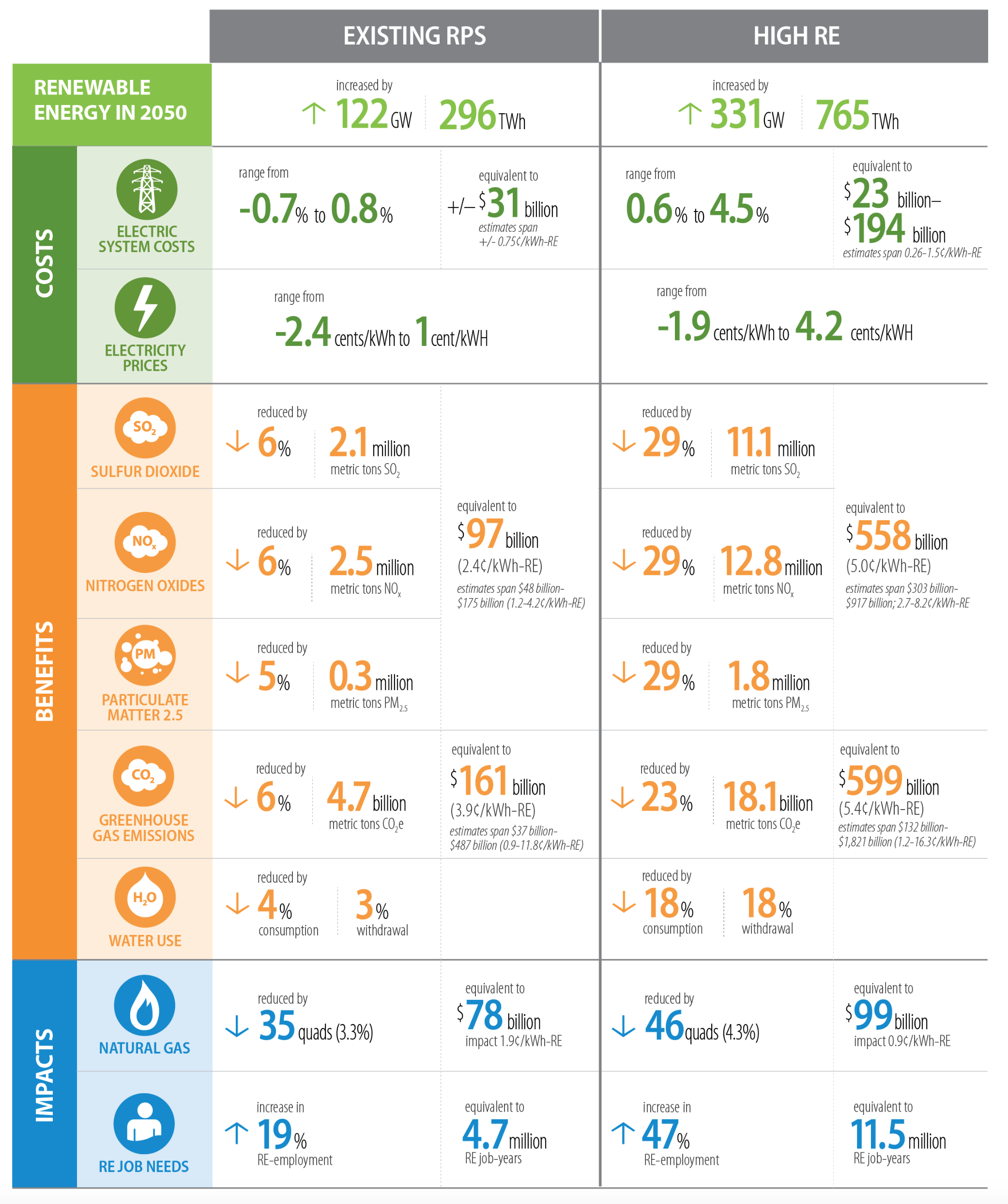New study from LBNL on NREL analyzing costs and benefits of renewable portfolio standards

Last month, LBNL and NREL released an important study analyzing costs and benefits of renewable portfolio standards. This study is a comprehensive look not just at the costs of implementing renewable energy to meet those standards but the benefits that accrue from doing so.
Those benefits include reduced greenhouse gas emissions, reduced criteria pollutant emissions (which cause human health impacts), reduced wholesale power prices, reduced natural gas prices, reduced water use.
The figure below summarizes the benefits and costs, as well as other impacts that are not monetized.

Some key findings:
• Existing RPS policies are roughly neutral on electricity system costs, while being more likely than not to reduce electricity prices.
• Whatever costs might accrue for existing RPS policies even at the high end are offset tenfold by reduced natural gas prices, criteria pollutant emissions, and greenhouse gas emissions.
• In the high renewable energy case, costs in even the highest electric system cost case are offset more than six fold by reduced natural gas prices, criteria pollutant emissions, and greenhouse gas emissions.
Many serial disinformers (like Robert Bryce and Bjorn Lomborg) claim that renewable energy is more expensive than conventional fossil electricity generation, but as this study shows, that claim is no longer true even when just considering direct system costs for existing RPS policies.
When we include the benefits associated with reduced pollution and natural gas prices (as we should when assessing costs from the societal perspective) renewable energy is a clear winner. Society is far better off by implementing more renewable electricity generation, and with costs of utility solar, building sector solar, and wind dropping dramatically in recent years, that conclusion will only strengthen over time.
Fossil fuels are only cheap when you don’t count all the costs. When you do your sums correctly, renewables are far cheaper from society’s perspective, and in many cases cheaper in direct cost terms. Fossil fuel fired electricity generation is living on borrowed time.
